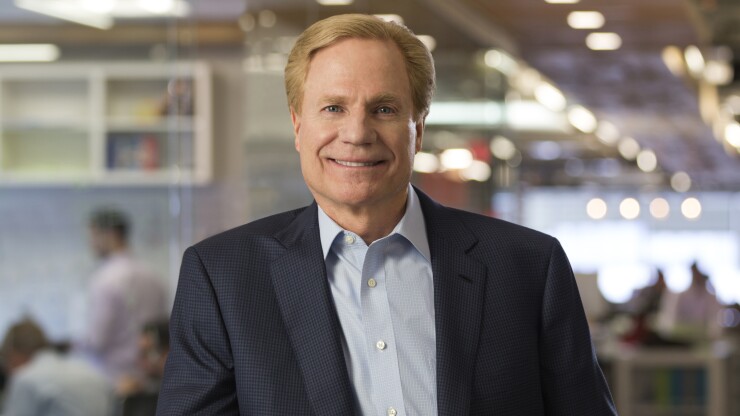Capital One Financial is driving a hard bargain in negotiations with Synchrony Financial over the potential purchase of approximately $10 billion in loans to Walmart customers.
Richard Fairbank, the chairman and CEO of Capital One, signaled in public comments Wednesday that he does not see a need to buy the credit card portfolio unless the deal offers favorable pricing and terms.

In July, Capital One reached an agreement to become the exclusive issuer of new Walmart credit cards. The deal
Instead, Capital One has the option to buy the portfolio at a price derived from a valuation determined under a contractually defined process.
Last month, negotiations took an acrimonious turn when Walmart, which has also been involved in the talks,
The Bentonville, Ark.-based retail giant alleged that Synchrony underwrote the Walmart portfolio in a way that placed an unreasonably high valuation on loans that are likely to result in higher-than-normal losses.
If Capital One refuses to pay the amount that Synchrony is seeking, then Walmart could feel pressure to make up the difference, which explains why the retail chain has an interest in the negotiations.
Synchrony, of Stamford, Conn., responded to the lawsuit by arguing that Walmart failed to promote the credit cards adequately, which contributed to their performance.
Fairbank made clear Wednesday that he sees a strategic advantage in maintaining the option of declining to purchase the existing portfolio of Walmart card loans.
“It is not required that we buy this,” Fairbank told the audience at a conference hosted by Goldman Sachs.
He added, “Either way, I think Capital One is in a very good position to build something great with Walmart.”
Synchrony executives have said that either outcome will be better for its earnings per share than renewing the Walmart contract would have been. If Synchrony retains the portfolio, it will have the opportunity to keep its Walmart customers by offering them general-purpose cards.
“While we are disappointed that we are not renewing our program with Walmart,” Synchrony CEO Margaret Keane said in July, “we are focused on either optimizing the capital freed up, if the portfolio is sold, or leveraging the benefits from retaining the portfolio.”
Capital One, of McLean, Va., reported $101.6 billion in domestic card loans held for investment at the end of the third quarter — a portfolio that would grow by about 10% if the company reaches a deal with Synchrony.





